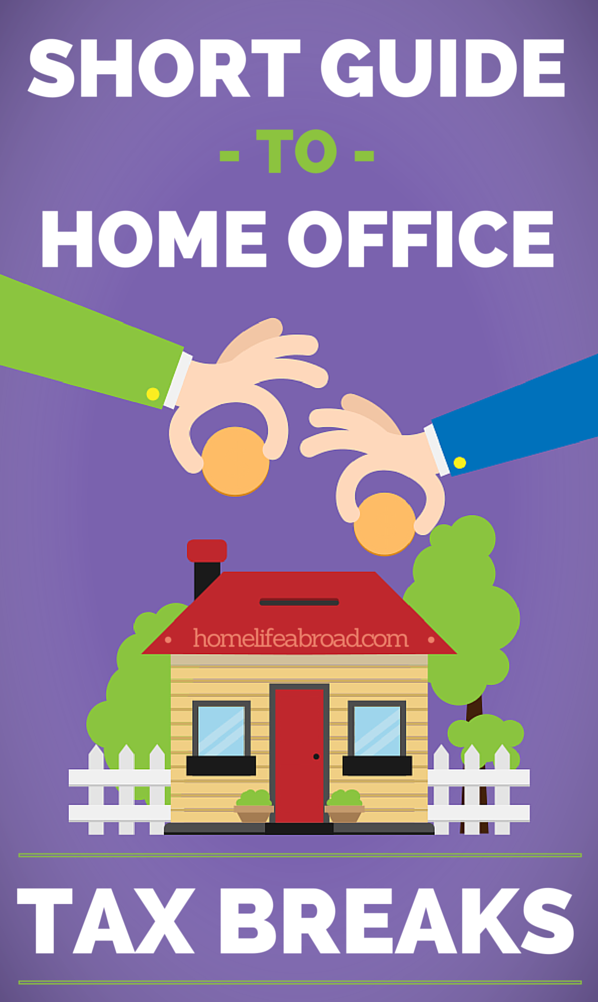As professional bloggers and even as freelancers, we need to understand our rights, responsibilities, and privileges when it comes to financial and legal issues. Just because blogging doubles as a hobby doesn’t mean that tax issues should be ignored – either from a positive or negative end. If you’re making money as a blogger and/or a freelancer, there are certain taxes that you may have to cover, and in certain situations, even tax breaks or returns!

You might be sick of the hustle and bustle of the city, of the daily long commute, or want some flexibility of hours (I know I was!) – or it could be that you had the fortune of acquiring a new house through fixed rate home loans and want to save even more on tax deductions. All of this can lead to a fulfilling career in your own business – right at home. I have been working from home for the past 2 years, which has given me the opportunity to save large on transportation, time and even home taxes. Not only does it provide a better work/life balance, but chances are that like me, you get to claim deductions and expenses from using your home as your “office”.
While the Tax Office view expenses associated with an individual’s home as those of private nature (and therefore “everyday” expenses are invalid), you can still claim deductions for home office expenses were added costs are incurred based on your diary of records of a representative four-week period, or, the actual expenses. As a safeguard, you can utilize a number of free tax tools to assist you. Of course, you should look into your country’s, state and city’s individual tax laws to see IF and HOW this applies to you.
Please note: I am NOT a tax expert. If you have any questions regarding your status and the home office taxation laws in your area, please speak to a professional from your location. Do NOT assume that what I have written below is applicable worldwide.

I’m excited, so what can I claim?
Generally, expenses fall into the following categories: running expenses, depreciation on equipment, and telephone and occupancy expenses (applies if the home is used as a place of business.)
Running Expenses. A deduction covering gas, electricity, and depreciation on office furniture may be claimed. The Tax Office will accept a fixed rate of 45 cents per hour for home office expenses for cooling, heating, lighting, and the decline in value of your office furniture instead of keeping details of real value. You won’t be able to claim if no additional cost is incurred – say you’re working in a room where your family watches television; or if the income producing use of the house was just incidental and not substantial.
If you do claim a deduction on utilities, then you need to be able to show how you arrived at the amount you want to claim as a deduction.
Depreciation on Equipment. This includes carpets, furniture, computer, printer, modem, scanner. These items are apportioned and based on a diary record kept over a four-week period and cover income related as well as non-income related use, showing the nature of the use of the tool, whether the use was for income production or the period of time it was used for. WikiHow has a great guide on how to calculate the value of depreciation.
Deductions are usually only available for electricity and for the decline in value of many office furniture (remember the per hour cost of the method mentioned above). You won’t be able to claim a deduction for value on your carpets, curtains, or light fittings. Also, you can claim the cost of renting or owning the house, not unless a specific area – usually a room – is set aside specifically for business use.
Telephone and Occupancy. All work calls can be assessed either by providing an itemized telephone account or from keeping a diary over a representative four-week period which will establish a pattern for the Tax Office to know the usage.
If you are renting a telephone, the rental charge may be partly deductible if you are “on call” or supposed to communicate with your clients or employer regularly. This can be easily calculated by dividing your business calls (both outgoing and incoming) by your total calls (outgoing and incoming).
Remember that occupancy expenses such as mortgage interest and home insurance are ONLY deductible where the home is actually a place of business.
If you want to have a deduction of claim on utilities, you must be able to show how you calculated the expenses. Basing the claim on a floor area basis won’t do as the floor plan is also used for non-business purposes.
That’s the bulk of it! Now here’s a bonus topic, aside from home business tax breaks, you can also have deductions from the following:
Energy Credits. Help mother nature. Help yourself. If you installed an energy-efficient improvement to your home (solar panels, wind turbine, etc.) you can get a credit of up to 10 percent of the cost of those improvements, to a maximum of $500. This will cover expenses like new doors and windows, insulation as well as high-efficiency cooling or heating systems. You can also get a credit for 30 percent of the cost of renewable energy equipment, like solar and wind power.
Medical Home Improvements. Being home-ridden have its benefits. If you have a medical issue that requires home improvements, such as adding a stair lift because you’re physically challenged or an air filter because you suffer from allergies, you may be able to write off some of these costs as part of medical deduction.
Take note that you can only deduct that portion of your medical costs that exceed 10 percent of total adjusted gross income (a total of 7.5 percent if you are 65 or older.)
In many cases, you can deduct only the difference between the cost of the medical equipment and the increase in value to the home from this tool. Some improvements like widening doorways to accommodate a wheelchair will add no marketable value to your home but are fully deductible once you meet certain income requirements.
Thanks to Freepik for the unedited version of the featured image.





I am so not good with taxes so this is a very helpful post for me. Thank you for all the tips and the info! I never thought that there are so much that you can save on.
I am glad to hear about all these things that can be claimed when using your home as office. So many people have had to do this so this is a great thing
Great information! This is why I let an accountant who specializes in bloggers and photographers handle my taxes – he knows all these little details! They make a difference, too!
I’m not good when it comes to taxes but this is really a great information for me, I’m so glad that you share this very helpful post.
Very useful for the upcoming tax season! Thanks for the information.